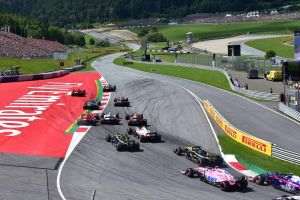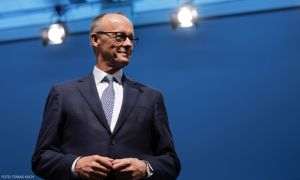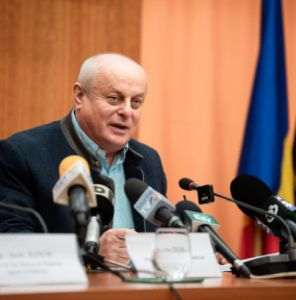
• The planet does not have enough Jews
In its annual economic inequality reports, Oxfam reported that the richest 1% of the global population own more wealth than the remaining 99% combined.
The Credit Suisse Global Wealth Report has repeatedly shown that wealth is highly concentrated in the hands of a small elite. According to the 2023 report, the richest 1% own about 45.8% of global wealth, reflecting significant concentration, although not at the extreme 99% level.
Although they present somewhat conflicting figures, both Oxfam and Credit Suisse refer to the same proportion of the wealthy and calculate the wealth of the richest one percent of the world's population.
But, Jews are not 1% of the world's population.
Statistics claim that in 2023, the world's Jewish population was estimated at 15.7 million.
That makes 0.2%.
The rest are Russians.
Of course, this is a joke to emphasize the ridiculousness of the idea of Jews ruling the world; for those who haven't noticed, I included all of the world's Jews among the world's richest, including beggars in Israel, kibbutz peasants, telephone workers, and Netafim irrigation factory workers.
And, after including all the Jews of the world, it turns out that there are four fifths of rich people of other ethnicities left.
If it didn't make victims, anti-Semitism would be sickening.
• Russian anti-Semitism
Here is a brief overview of the main aspects and developments of Russian anti-Semitism:
1. The period of the Russian Empire (18th-19th centuries)
- "Residence Zone" (1791) : The area where Jews were forced to live, excluding them from most regions of the empire.
- Pogroms: Violent attacks on Jewish communities in 1881-1884 and 1903-1906, often tolerated or instigated by the authorities.
2. The birth of Zionism
- Origins and contexts: The Zionist movement arose in the late 19th century, largely in response to anti-Semitic persecution in Europe, including Russia.
- Role of Russian Jews: Russian Jews were among the most active promoters of Zionism, with notable figures such as Leon Pinsker, author of the work "Self-Emancipation" (1882), and Theodor Herzl, founder of the modern Zionist movement.
3. The Soviet period (1917-1991)
- Bolshevik Revolution: Initially, the Soviet regime abolished discriminatory laws against Jews; many Jews held important positions in the government and the Communist Party.
- Stalinism: State anti-Semitism returns. "Doctors' Plot" (1948-1953) - Jewish doctors accused of conspiring against Soviet leaders.
- Cold War: Tensions with Israel and the perception of Jews as potential traitors.
4. Post-Soviet period (1991-present)
- Decline of state anti-Semitism: After the collapse of the Soviet Union, official anti-Semitism declines, Jewish communities rebuild their institutions.
- Popular anti-Semitism: The persistence of popular anti-Semitism, promoted by nationalist organizations and extremist groups.
- Recent trends: Anti-Semitism linked to Russian nationalism and xenophobia; the current government takes occasional action against anti-Semitism.
• In fact, Russia is not anti-Semitic
The anti-Semitism index calculated by ADL Global 100 credits Russia, for the year 2023, with a 26% level of anti-Semitism, a decidedly lower level than the Eastern European average (34%).
The record of anti-Semitism in Eastern Europe, according to those measurements, is held by...Romania (47%)!
Contrary to the traditional image that Romanians are a welcoming, gentle and tolerant people, this is the land from which the book "The Hospital, the Koran, the Talmud, the Cahal, Freemasonry" written by doctor Nicolae Paulescu (the discoverer of insulin) was launched in 1913.
He uses the Koran and the Talmud to prove that there is a worldwide Jewish conspiracy.
The Romanian Constitution of 1866 stipulated, in Article 7, that only Christians could become Romanian citizens, thus excluding Jews. In the War of Independence of 1877, a significant number of Jews participated, with the hope that their military service would be recognized by granting Romanian citizenship.
Although there were promises and expectations in this regard, the reality was much more complex and marked by discrimination and delay.
The Berlin Conference (1878) recognized Romania's independence but, for international recognition, imposed some conditions, including amending Article 7 to allow the naturalization of Jews. In 1879, Romania adopted the Naturalization Law through which Jews could become citizens, but the process was complicated and required individual approval by Parliament, which considerably limited the number of naturalized Jews.
On the main alley of the Sefard Cemetery in Bucharest, a monument is erected in memory of the Jews who gave their lives for Romania, in the wars in which it was trained.
However, Romania is not the champion of anti-Semitism in Europe, but Greece, with a 67% level of anti-Semitism.
The study by the European Union Agency for Fundamental Rights (FRA), cited at the beginning of this article, suggests that the evolution of anti-Semitism in Europe is extremely dynamic recently and that the levels established by the ADL studies no longer illustrate the current situation.
At first glance, the rise of Russian anti-Semitism during the war in Ukraine was aimed at propagandistic purposes, to discredit the Ukrainian government and justify military intervention.
We find, however, that the extremist, blind reaction of the Israeli government in the Gaza Strip revived anti-Semitism all over the world, convening an explicitly anti-Semitic international community, willing to bring Russia out of isolation, to fight the common enemy - Israel.
It doesn't matter how many confusions lead to this result, what matters is the result that, for example, attracts the youth from the university environment in developed countries to anti-Semitic beliefs.
Young American students believe that the solution to the conflict in the Gaza Strip is for Israel to be abolished, a belief that until now could only be found among some residents of MENA (Middle East and North Africa) countries.
The fate reserved by the anti-Semites for the Israelis after the supposed dissolution of Israel, always remains unspecified, but, in the absence of a solution, one of the implications is their extermination (I have seen such interviews given to some Palestinians).
• Anti-Semitism, Russia's link with the Global South
The "Global South" is a name for countries and regions, mainly in the southern hemisphere, considered to be less economically developed, in contrast to the "Global North," which includes the more economically developed countries of North America, Europe, and parts of Asia Of east.
MENA is part of the Global South.
According to ADL studies, the MENA region experiences the peak of anti-Semitic sentiments on Earth, with a level of 74%.
The absolute performer is - predictably - the Palestinian population, with 93% anti-Semitism; the 7% missing to 100% absolute anti-Semitism, I think is down to the poll's margin of error.
In second place is Iraq, with 92%.
The MENA country with the highest tolerance towards Jews is, surprise!, Iran, with "only" 60% anti-Semitism.
From MENA they belong (the countries where the proportion of anti-Semitism does not appear, are not found in the ADL study):
- Middle east:
Saudi Arabia 74%
Bahrain 81%
United Arab Emirates 80%
Iran 60%
Iraq 92%
Israel
Jordan 81%
Kuwait 82%
Lebanon 78%
Oman 76%
Palestine 93%
Qatar 80%
Syria
Turkey 69%
Yemen 88%
- North Africa:
Algeria 87%
Egypt 75%
Libya 87%
Morocco 80%
Sudan
Tunisia 86%
Volodymyr Zelensky noted the connection between the war that Russia is waging in Ukraine and the war in the Gaza Strip: "Russia is interested in starting a war in the Middle East, so that a new source of pain and suffering undermines world unity, increases discord and contradictions and thus help Russia destroy freedom in Europe" (5)
Russian anti-Semitic propaganda serves a deeper purpose than just compromising Zelenski, it provides the lens through which MENA countries see Russia as an ally; Was this a goal from the beginning or did it just fit?
Is there any connection between the dismemberment of the territory of Ukraine and the Palestinian liberation struggle?
No, it's not a link, but here I found it.
And so, is there any connection between the occupation of Crimea, Donetsk and Luhansk by the Russian army and the emancipation struggle of the Global South?
No, there is no link, but I will find it.
The Global South is indebted to the Global North, to which it repays its credits by harnessing its natural resources; obviously, the credits are Jewish, and this is how the Russian occupation of Ukrainian territories is a heroic act of resistance to Western arbitrariness.
• This is not a conclusion, but a preface
This article should, in fact, be a preface to a serious study of the causes of the crises of the contemporary world - the financial crisis, the energy crisis, the food crisis, the water crisis and the spiritual crisis.
Anti-Semitism has the quality of hiding the true causes of these crises, which, as I showed in my book "The Solution to the Crisis", published in 2016, have their origins in the human organization built on interest-bearing credit.
In the 400 years since this construction dates, its economic-financial elasticity has been exhausted, the earnings from investments coming from loans no longer cover the interest and sometimes even the principal.
Globally, debt is rising much more steeply than gross domestic product.
The situation calls for another human organization - in the book "Kingdom of God on Earth", I proposed an order derived from the Biblical Commandments, to stimulate other such proposals for the desirable society.
The moment calls for such dreams and revelations.
In turn, the outbreak of wars provides oxygen to the suffocating human organization, as it suffocates any pyramidal financial system, including the one developed on the scale of the entire planet.
The war started by the Russians in Ukraine has revitalized the war industry around the world.
A financially and economically entangled world is self-destructing, finding itself dragging its way to something else.
Ridiculous.



























































